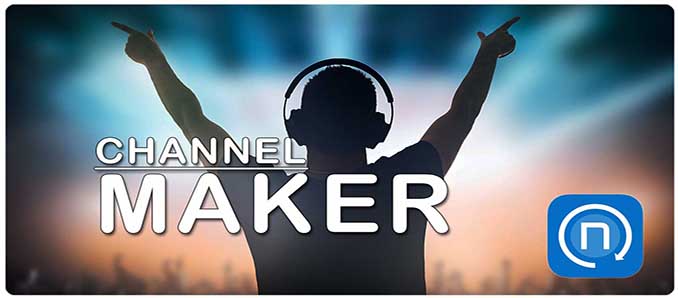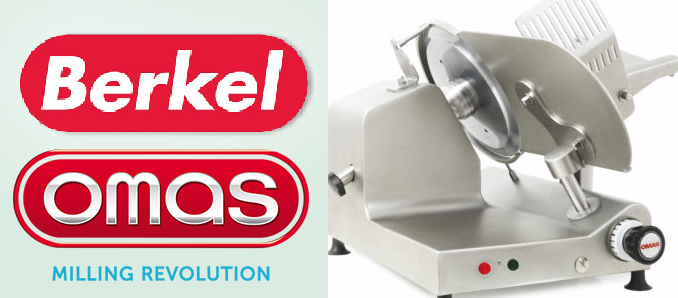::: Six ways to know if your hospitality business is disruption-ready :::

Disruption. This buzz-worthy notion must scratch well below the surface. It’s a profound, visceral change to the very core and essence of a business, industry or marketplace at large. Many speak of it, but few “really” know how to disrupt in a way that forces rapid evolutionary change.
The era of disruption and digitization is not only upon us, it’s persistently driving deviations in the hospitality business landscape—and at an indiscriminately rapid pace. Those food, beverage and other hospitality companies aptly positioned to adapt fast to fluid marketplace dynamics can survive, but forethought and proactive measures must be put in place to best assure that. A philosophy of “accepting no limits” and “embracing alternative thinking” must be ingrained in a company’s culture to fundamentally change its paradigm for success.
With this notion in mind, I recently connected with Microsoft alum and emerging disruptive tech expert Irfan Khan, President and CEO of Bristlecone (a subsidiary of the $19B Mahindra Group), for business insights on driving meaningful transformation. Khan is a marketplace change agent…a “disruption deity” known for shaking things up to aptly build customer-centric organizations; drive business growth; and proffer highly effective turnaround and optimization strategies. I asked Khan for some top-line thoughts, including his opinion as to whether disruption and innovation are mutually exclusive paradigms. Here’s what he had to say:
MK: Can disruption and innovation go hand-in-hand?
IK: I often wonder about this, as I hear the word ‘disruption’ quite often,” Khan notes. “Over time, I have come to understand that disruptive innovation is characterized by two attributes. One, the new innovation is a new way of doing business within an established industry. Two, this new way of doing business is in direct conflict with traditional methods. Using the example to inventory and material procurement, the emergence of blockchain creates a situation where every single supply transaction can be protected by the “influence of the many.” In other words, for any changes to be made to the data stored via this medium, consensus must be obtained. Examples of transactions include the issuance of a purchase order as a legal contract and the transfer of asset ownership.
This can be compared to the way nuclear codes work – a launch can happen only when everyone with the secret code enters it accurately.
MK: Must we change our perceptions of disruption to one with a favorable connotation?
IK: It is perhaps safe to say that disruption in all traditional industries in general, and in procurement, in particular, is not just inevitable and something to be dealt with, but even desirable. Disruptive innovation using technology has the ability to transform the Supply Chain as we know it, be it through increased transaction security or by increased accountability at each step of the way.
Thus, hospitality businesses will find that, using innovation, they can reduce the cost of doing business, do it more efficiently and build a more sustainable solution that doesn’t bleed money and also provides long-term results.
MK: What would disruption look like, in F&B procurement for example?
IK: Only skimming the surface here, as most of these advancements already exist in the market, but consider these three facets:
- Spend Analytics:Can you use AI to classify spend data? Products like Spend360 allows you to pinpoint every single spend on suppliers, understand why one method costs more than another and allocate spending so as to make most business sense.
- Risk Management:By analyzing data from a company’s own portfolio of suppliers, as well as historical data from the industry, some products can predict the type and level of risk in procurement at each stage of product development. Such a solution can enable you to attach a premium to the risk, or to find ways to remove the risk from the system entirely.
- Supply Intelligence:Churning data from millions of market sources enables products to accurately predict the price of most common supply commodities, including metals.
If this is already happening, you’d want to know what can be expected. Outrageous as the ideas themselves may be, no one ever thought blockchain could find such widespread acceptance. We can expect data to help us attach value to each sourcing operation, down to the molecular level. This can save businesses huge amounts of capital. IoT will also have a role to play in offering granular visibility across the procurement and manufacturing process by accounting for every single component digitally.
MK: What can companies do to be better prepared for disruptive innovations ahead?
IK: Research shows that in as less time as the next three years, traditional industry practices need to find a way to become complementary to disruptive innovation. Innovation would become the new norm around which traditional models work.
Is your business disruption-ready? Here’s are six ways to find out.
- Do you accept that the face of the industry is about to change and that change is already underway? Every leader must look as far as ten years ahead into the future and be able to anticipate the realities of that time. Only then will the business have enough time to accept or challenge the disruption in their domain.
- Do you have a personal impact matrix? Such analysis can help identify one or two key disruptors that would impact the business most severely. These aspects can then serve as the starting point for internal review and innovation.
- Does your value proposition hold value down the line? Remember, disruption can make people go out of business overnight. With the advent of retail management systems and e-commerce, we are already seeing a reduction in the need for manpower. Evaluate your value proposition across a broad time period.
- Can you disrupt the industry? If you have a revolutionary idea, it is best that you put it into practice first. This can give you an edge in the current market and put you first in the race in the future as well.
- Are your departments integrated? Business intelligence is sourced from every single department in the business. While most manufacturers look at investment vs. output, it is time to measure the output against marketing spend, Supply Chain delays, product satisfaction and other KPIs independently and also as a consolidated result.
- Are you willing to step out of your comfort zone? Some procurement companies find that they need to step into other industries, including but not limited to information technology and software development, in order to be able to cause a disruption or survive it. Business leaders with a pan-industry perspective are more likely to succeed in this endeavor.
With a viewpoint ever-focused on the horizon while still trying to manage and maximize the here-and-now, it can be easy to get overwhelmed. Gartner’s report on “Top Strategic Predictions for 2018 and Beyond” cautions, “The future is filled with disruption. But, the pending disruptions are taking on new forms. The relationship between people and machines are changing forever and our expectations for how the world will evolve are changing too. To cope…organizations must learn to develop an appropriate pace for digital change.” So while the urgency of change is an omnipresent pressure point, it’s wise to heed Gartner’s disruption decree to “pace yourself, for sanity’s sake.”
~~~
Branding, business and entrepreneurship success pundit, Merilee Kern, MBA, is an influential media voice and lauded communications strategist. As the Executive Editor and Producer of “The Luxe List International News Syndicate,” she’s a revered product trends expert and brand blueprint voice of authority who spotlights noteworthy marketplace change makers, movers and shakers. Merilee may be reached online at www.TheLuxeList.com. Follow her on Twitter here: http://twitter.com/LuxeListEditor and Facebook here: www.Facebook.com/TheLuxeList.
Sources: https://www.gartner.com/technology/research/predicts/








